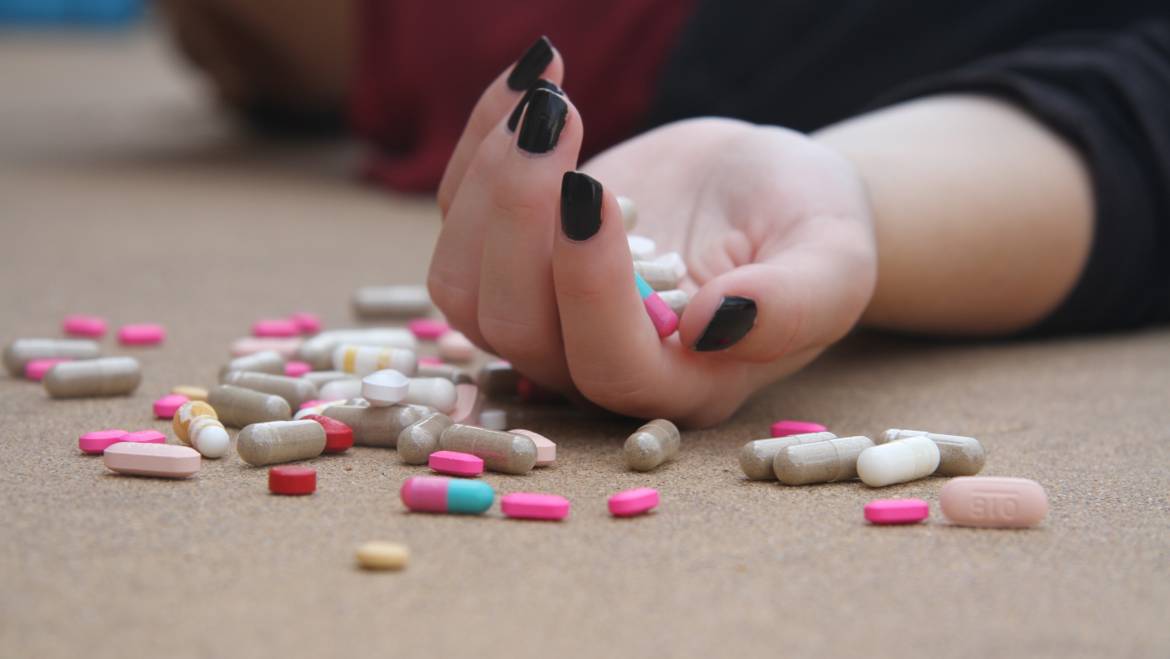When most of us think about drug/substance abuse in young adults, we probably think of marijuana and cocaine, and for a lot of areas in the U.S., we would be right. And there’s some good news here. Thankfully, illegal drug use in general seems to be diminishing in most of the country’s high schools. But alarmingly, prescription drug abuse is rapidly rising. So how bad is the problem? A recent bulletin from the CDC tells us that 1 in 5 high school students report using a prescription drug sometime in their lives. That’s a lot. And what may be more troubling are the most commonly mentioned drugs: OxyContin, Percocet, Vicodin, Adderall, Ritalin, and Xanax – all potentially scary medications.
Where are these young people getting these drugs? Many teens get them from medicine cabinets at home or from family members and friends. Amazingly, some can be bought online. And more recently, many of these drugs can be bought from drug dealers who are moving into this lucrative business.
These are not innocuous medications. Along with their increased abuse come overdoses, deaths, auto accidents, and dependence problems; not to mention the increase in associated criminal activity. But what are we to do? This is a complex issue, but being educated and aware is the first step. If you have teenagers in the house, make sure you talk with them about this problem, and make sure you know where all of your prescription medications are kept. And if you suspect a problem with abuse, seek professional help – either your family physician or Keystone (803-324-1800/after hours-324-0404/prevention and education-324-4118).
That’s pretty heavy to deal with, so while we’re mulling over that problem, let’s consider another troubling issue: cancer. Specifically, prostate cancer. Actually, there is a little bit of good news here.
Several recent studies have proven that high-risk individuals can lower their chances of developing this disease by consuming certain antioxidant-rich foods. First though, who is at risk for developing prostate cancer and what are the risk factors?
Age is a major factor, with 1 in 7 men developing this disease by the age of 70. Another risk factor is your race, with African-Americans having an increased chance here. And finally, your family history is important. If you have a first-degree relative with prostate cancer, that places you at an increased risk.
If you fall into any or all of these categories, you probably want to reduce your chances of developing this cancer if at all possible. So here’s the good news: several recent studies indicate that some dietary factors can act as “chemopreventatives,” thus reducing (but not eliminating) your chance of developing this disease. The first is consuming a cup or two of green tea each day. Green tea extract (capsules) may also be effective. The next is the consumption of foods high in lycopene (a well-established antioxidant). These are common and readily available: Grapefruit (½ has 1,453 ugs), tomatoes (one cup has 4,631), watermelon (one cup has 6,979), and eight ounces of tomato juice has a whopping 22,000. This is something to think about, and consider adding to your diet. If a glass of tomato juice every day or so could reduce your chances of developing prostate cancer, I’d say that would be a pretty good trade-off.
And lastly, let’s consider some information published in the British Medical Journal (2010; volume 340). This is important because it deals with a disease that affects a growing number of people in this country. Actually, the number is exploding. I’m talking here about diabetes, and we should all be aware by now of how this is becoming almost epidemic in the U.S.
The information here is significant for those patients with diabetes who are being treated with metformin, and that would be a lot of you. This is a very effective and affordable medication, and usually well-tolerated by most patients who use it. This recent study points out a potential problem with its use though, and that is the lowering of B12 level when it is ingested. It’s thought that this occurs through a problem with absorption of this vitamin, caused by metformin. This can lead to the development of significant, and easily preventable, problems. If you are taking this drug, you might want to ask your physician about this potential, and you may want to add this supplement to the vitamins you are already adding to your daily diet.
Later, I want to revisit the issue of prostate cancer and how we currently screen for it. You’ll see that this is a difficult subject, and the final chapter hasn’t been written yet. And you’ll see why that makes things difficult for us as physicians and for our patients.
But until then, drink a glass of tomato juice each day, take your B-complex capsule, and lock your medicine cabinet.


Add Comment